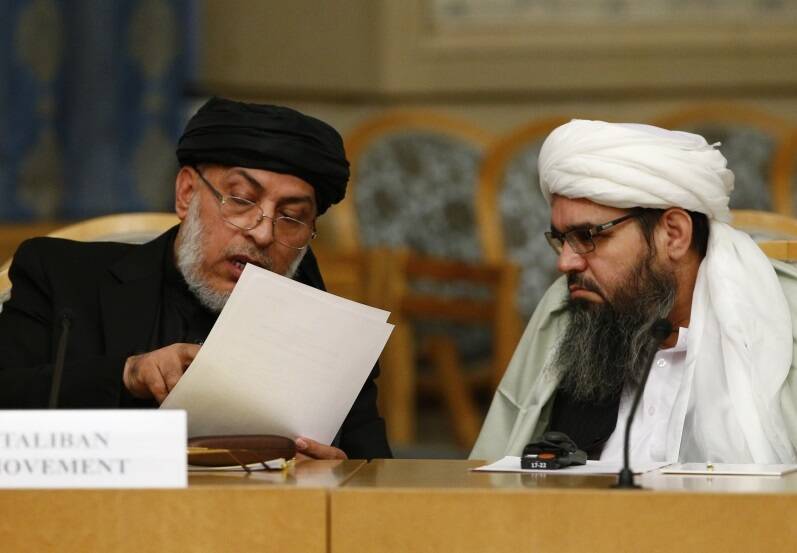In an interview with the website of the Strategic Council on Foreign Relations, Mohammad Reza Asgari Moroudi said that after several months of conflict between Ashraf Ghani and Abdullah Abdullah, an agreement had been signed between them to form a participatory government. Because the previous government, which was formed as the government of national unity with the presence of Ashraf Ghani and Abdullah, faced many problems.
He added: “Of course, this time in the national participation government, unlike the previous government, the dimensions and details of the formation of the government have been determined. Accordingly, Mr. Abdullah will have the authority to decide on 50% of dismissals and appointments of national and local officials. The procedure for selection and introduction of proposed ministers to the Afghan House of Representatives must also be decided in the agreement between the two sides.”
Despite the fact that the details and dimensions of the participation in the government are clear, the expert on Afghan issues highlighted the hesitations about its success and said: With the start of the participatory government, some of the differences that existed in the previous government between Mr. Ashraf Ghani and Abdullah may re-emerge.
Formation of Inter-Afghan Talks the Most Important Political Issue
Asgari described Taliban’s participation in power as one of the national participatory government’s main challenges in Afghanistan, saying that the formation of inter-Afghan talks until the Taliban’s participation after the Doha agreement between the Taliban and the United States was the most important issue in Afghanistan’s political landscape. However, the Taliban spokesman’s stance on the agreement between Mr. Abdullah and Mr. Ghani on the formation of a national participatory government shows that the Taliban is not satisfied with the agreement and considers it useless and that the only way out of the political crisis is to implement the Doha agreement between the Taliban and the United States.
Referring to the release of a number of Taliban prisoners by the government based on US-Taliban agreements, he said: “The most important and ambiguous point of this agreement before the inter-Afghan talks is the release of all Taliban prisoners and preparation of the ground for the group’s participation in Afghanistan’s political structure. Of course, if there is to be an agreement between the Afghan government and the Taliban in the Afghan peace process, the issue of the Taliban’s integration into Afghan society must be carefully considered by the Afghan government and ruling establishment.”
Taliban’s Desire to Cooperate with Other Groups in Power
Referring to the Afghan government’s condition that the release of other Taliban prisoners depends on reducing violence and their readiness to join the peace process, he said: “The integration of the Taliban in various fields, especially in the political and military spheres, is a special task facing the Afghan government. However, they are keen to form a government in Afghanistan in partnership with other ethnic, political and religious groups. However, senior members and leaders of the Taliban, who failed to establish an Islamic Emirate for nearly two decades as their ultimate goal in the war in Afghanistan, are keen to partner with other ethnic, political and religious groups in Afghanistan.
Asgari also referred to the positions of the Taliban’s political deputy leader, who said the group’s forces would defend the structure of the next government and work for peace, security and stability in the next government, and that their military would be the real force for all Afghans. It appears that they are interested in being appointed or elected to serve the country and play a role in the Afghan political scene. Of course, the government should be careful, and of course in the Afghan military, the Taliban’s uncertainty could be a major obstacle to security in Afghanistan, so the Afghan government must provide the ground for the Taliban’s armed forces to be controlled. Join the Afghan Armed Forces. Of course, it must provide mechanisms so that the Taliban-affiliated forces do not join the ranks of the Afghan government again by joining the ranks of the Afghan army.
Some Kind of Flexibility in Taliban’s Positions
Emphasizing the importance of the government’s role in national participation and the need to reduce tensions and create a platform for dialogue with the Taliban, he added: However, since the defeat of the Taliban government in 2001, in the last two decades or so, they have not been able to regain their ability and achieve the goal of establishing an Islamic Emirate.
Asgari said: “With the war of attrition in Afghanistan, the Taliban’s military-armament and financial capabilities are declining. It seems that this group has come to the conclusion that instead of totalitarianism, it should be able to take a part of the power in its hand and by cooperating with other groups and become active in the socio-political and cultural environment of Afghanistan.










0 Comments